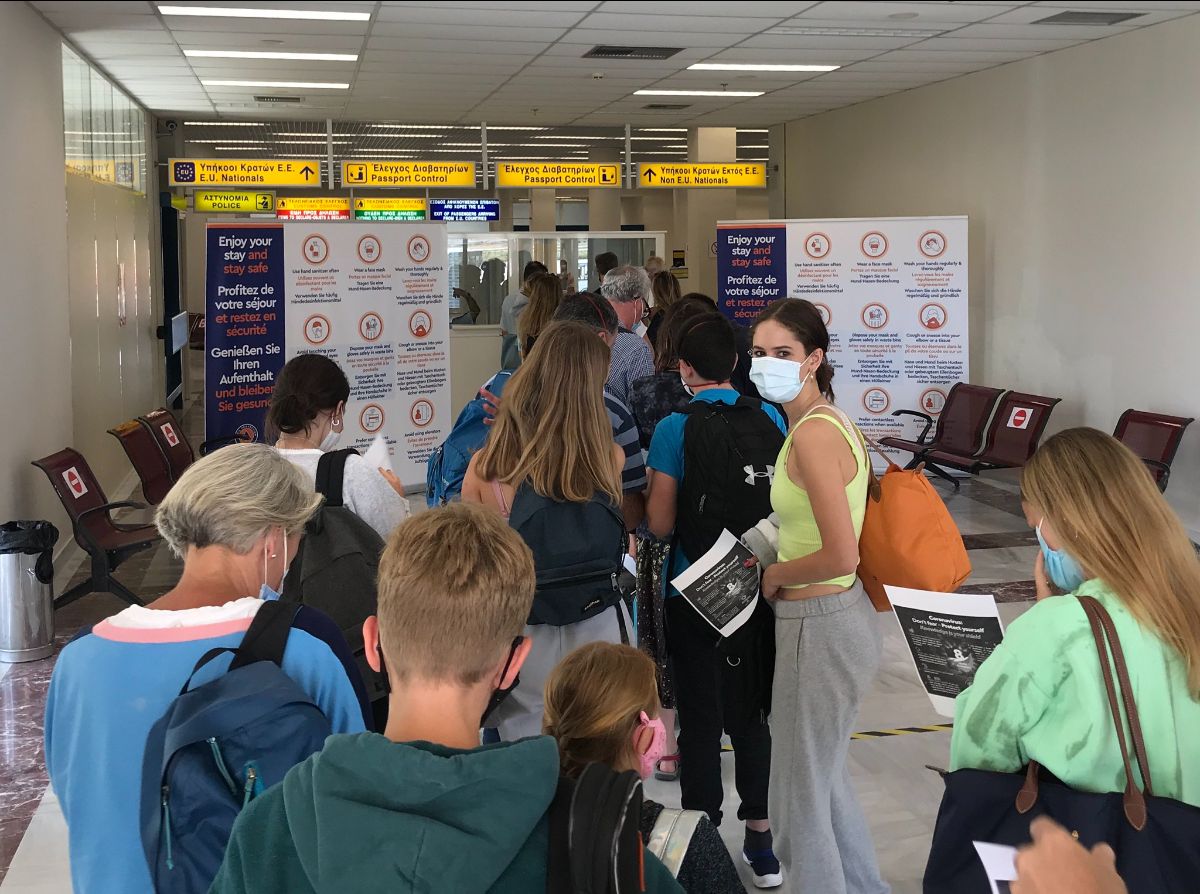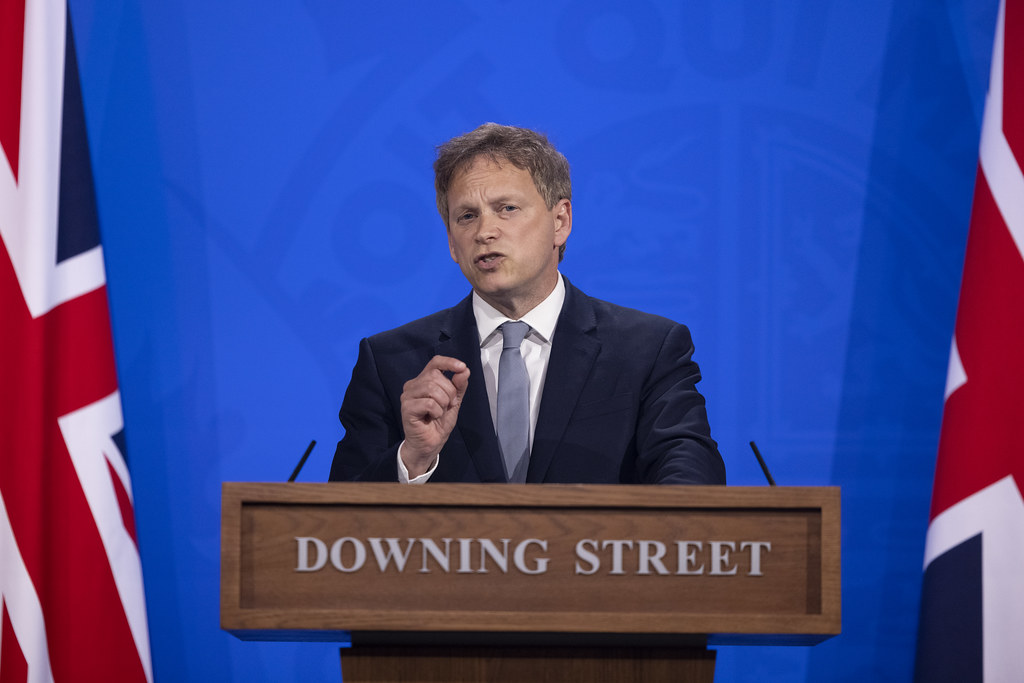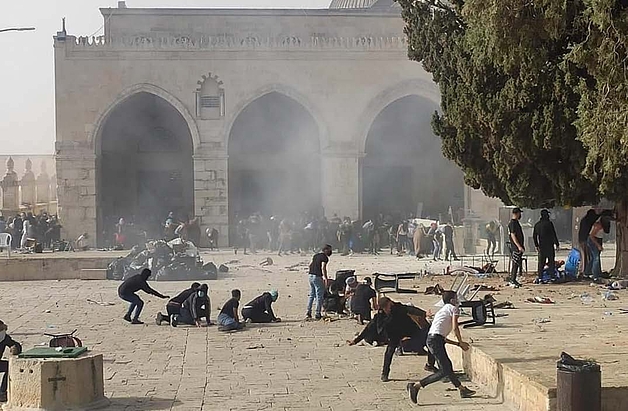Welcome to Factal Forecast, a look at the upcoming week’s biggest stories and what they mean from the editors at Factal. Published every Thursday, Forecast is a newsletter to help you get a jump-start on the week ahead. Get it in your email by subscribing for free.

A look ahead:
May 14/ Greece reopening to tourists: The Greek government will officially open up for tourists on Friday in a bid to boost the tourism sector upon which the country relies economically.
- What’s happened so far: After not being hit particularly hard during the first wave of the pandemic, Greece saw a rise in coronavirus cases in early spring, overwhelming its health system. But a more recent stabilization of cases allowed the government to reopen. Meanwhile, Greece has already lifted quarantine restrictions on visitors from several countries, instead requiring a negative coronavirus test or proof of vaccination. Ahead of the official reopening, the country opened up its beaches, as well as bars and restaurants.
- The impact: By the end of the month, Greece expects to exceed 5.4 million coronavirus vaccinations. With tourism accounting for a fifth of its economic output, the Mediterranean country is one of the first countries in the world to offer tourists the opportunity to travel without tight restrictions. If successful, the move could be followed by other holiday hotspots sooner than expected, including destinations such as France, Italy or Malta. The European Commission announced last week the so-called “coronavirus passport” will be in place in June, facilitating travel between member states in time for summer.

May 14/ Virtual summit against online extremism: A virtual summit is slated for Friday to mark two years since the launch of the “Christchurch Call” against online extremism in the wake of live-streamed mass shootings at a pair of mosques in the city.
- What’s happened so far: Two months to the day after back-to-back mass shootings at mosques in Christchurch, New Zealand, left 51 people dead and 40 others injured, Prime Minister Jacinda Ardern and French President Emmanuel Macron announced the pledge, as part of an effort to bring governments and tech companies together to “eliminate terrorist and violent extremist content online.” At the time, the United States declined to participate, over what the White House called “free speech concerns.” Earlier this month, the U.S. reversed course and joined more than 50 nations to sign the pact, with the Biden administration saying their participation “reinforces the need for collective action.”
- The impact: Ardern says significant progress has been made in the two years since the pledge was announced, including an increase in collaboration across various sectors, and further research into terrorism and violent extremist content online.
May 15/ Regional and municipal elections in Chile: Chile will hold its regional and municipal elections over two days starting Saturday, more than a month later than originally scheduled due to the country’s worsening health crisis.
- What’s happened so far: Over the weekend, Chilean citizens will vote to fill 155 seats of the Constituent Assembly and to elect more than 340 mayors, as well as governors and municipal councils. Officials decided to extend the election over two days due to Chile’s pandemic situation, in which, despite being an example of speedy vaccination in the region, cases and deaths haven’t seen a significant decline. Voters are asked to bring their own pencils, wear a face covering and use their own hand sanitizer. Special voting hours have been designated for elders, pregnant voters and people with disabilities or in need of assistance to cast their ballots.
- The impact: This weekend’s election is set to be historic, not only because it’s the biggest to be held in the country yet, but also because newly elected lawmakers will be tasked with rewriting Chile’s constitution. The government committed to the rewrite process following a deadly wave of civil unrest in 2019 in an aim to get rid of a carta magna that dates back to Augusto Pinochet’s dictatorship.
May 16/ Puerto Rican congressional delegation election: Puerto Ricans will vote Sunday in an election to send two special delegates to the U.S. Senate and four to the House of Representatives, with plans to become the 51st state.
- What’s happened so far: As residents of a U.S. territory, Puerto Ricans are U.S. citizens, however they don’t have federal representation and cannot vote for president. They vote for a resident commissioner, which has almost all of the rights of other House members, but cannot vote on matters before the full House. Puerto Rico has held several non-binding referendums on its status, most recently in November 2020. In that vote, 52 percent of the population believed Puerto Rico should be admitted immediately into the union as a state. The next month, Puerto Rico’s Legislative Assembly enacted Law 167, setting up a special election that creates a congressional delegation to advocate for statehood. These shadow lawmakers will not be able to vote on legislation, but they must swear to defend the mandate of the people regarding statehood.
- The impact: This may be Puerto Rico’s best shot at becoming a state. Dozens of lawmakers from both parties recently cosponsored a bill allowing statehood and President Joe Biden said he is in favor of it. The legislation, however, has serious roadblocks in the Senate, with both Mitch McConnell and Chuck Schumer saying they’re not in favor of the move.

May 17/ England reopens travel, eases restrictions: With coronavirus-related hospitalizations and infections steadily decreasing, England will move to ease coronavirus restrictions Monday.
- What’s happened so far: Amid a sustained decline in coronavirus infections coinciding with ever-increasing numbers of fully vaccinated people, England will move to allow further easing of restrictions on both domestic gatherings and travel beginning May 17. Under the plan, establishments such as pubs and restaurants will reopen for indoor gatherings. England will also reopen its borders to international travel, albeit with strict control measures in place regulating entry. Under the reopening, countries will be classified under a tiered system, with “green list” countries, of which there are 12 to start, exempt from quarantining upon arrival.
- The impact: England’s reopening comes on the heels of a relatively successful inoculation campaign that yielded fruitful results. Politically, Prime Minister Boris Johnson will look to ride the country’s vaccine successes to additional political gain following the conservative’s wins in regional elections last week.
May 17/ Trial of former South African president begins: Former South African President Jacob Zuma will stand trial Monday on charges of corruption, money laundering, fraud and racketeering related to a $2 billion arms deal during his time as deputy president.
- What’s happened so far: For this particular trial, Zuma is accused of accepting bribes from Thales, a French defense company formerly known as Thompson-CSF, annually dating back to 1999. In exchange, Zuma allegedly protected the company from a probe into a deal to supply military equipment to South Africa. Both Zuma and Thales have denied the allegations. This is just one of multiple legal battles the former president faces, including a case where he refused to testify for a state graft inquiry into his tenure as president.
- The impact: With his legal team reportedly having quit less than a month ago and the government refusing to pay his legal fees, Zuma seems unlikely to emerge victorious despite his denial of any wrongdoing.
May 17/ Saudi Arabia borders reopen: Saudi Arabia will re-open its borders on Monday after they closed earlier this year due to a spike in coronavirus cases, though the Interior Ministry said some restrictions will still apply
- What’s happened so far: After initially suspending international flights in December, Saudi Arabia set March 31, then May 17, as the expected date to reopen. Cases spiked and followed a global pattern of spread, but now have tailed off, with new cases dipping below 1,000 per day and deaths falling to nearly single digits. Since the pandemic began, the kingdom has seen more than 428,000 cases and more than 7,000 deaths.
- The impact: Tensions between Saudi Arabia and its regional rivals have calmed recently and open travel will likely assist in a further normalization of relations. Though the country’s borders will be open, some 20 countries remain on a red list that was set in early February. The list includes countries like the United States and United Kingdom and countries which have seen significant spreads of variants, such as India and Brazil. Workers are also being told to get vaccinated before returning to workplaces.

May 17/ Landing of China’s rover on Mars: China’s six-wheeled, solar-powered Mars rover is scheduled to land on the Red Planet on Monday.
- What’s happened so far: China’s Tianwen-1 spacecraft entered Mars orbit on Feb. 10 and has spent the past three months surveying landing sites. Now that it has found one in an area of Mars called Utopia Planitia, the China National Space Administration is preparing to land the rover. The agency announced last month that the rover is named Zhurong, a fire god in Chinese mythology. The agency’s director says the name signifies igniting the flame of China’s planetary exploration.
- The impact: If China is successful in deploying and landing its rover, it will join the United States and the Soviet Union as the only countries with soft landings on the Martian surface and join the United States as the only other nation to drive a rover on Mars. Zhurong is expected to have a lifespan of about three months and will be tasked with studying the planet’s surface and water-ice distribution, as well as investigating its climate and environment.
May 20/ Somali state leaders meeting: Somali Prime Minister Mohamed Roble will meet with federal state leaders Thursday to discuss how to hold a much-delayed presidential election.
- What’s happened so far: Clashes broke out in Mogadishu on April 25 between officers allied with incumbent President Farmaajo and forces loyal to the opposition, who are calling for Farmaajo’s resignation over his government’s failure to hold a presidential election in 2020. Tensions rose after the Lower House of Somalia’s parliament voted to extend President Farmaajo’s term for a further two years to 2023. The legislative body later rescinded the extension and Prime Minister Roble ordered opposing troops to return to their respective bases.
- The impact: International partners are preparing to offer support to resolve the impasse, although it’s not clear whether the Somali government will accept foreign intervention. The African Union appointed former Ghanian President John Mahama as an envoy to support mediation efforts, but reports suggest the government has tried to delay Mahama’s deployment to the country. The UN called on all parties to reach an agreement on holding inclusive elections without delay.

What else matters:
Israeli-Palestinian conflict: More than 65 Palestinians and six Israelis have been killed in the most significant escalation of violence since 2014, with Israel carrying out heavy airstrikes on the Gaza Strip over the past several days and militias based in the territory firing hundreds of rockets at Israeli cities. The fighting is a culmination of a month of rising tensions after Israel cracked down on traditional Palestinian Ramadan gatherings in Jerusalem’s Old City and proceeded with plans to evict dozens of Palestinian residents of the city’s Sheikh Jarrah neighborhood, sparking protests. It also follows an increase in individual acts of violence in the weeks leading up to the conflict by Israeli settlers and Palestinians targeting each other in West Bank areas.
- Watch for: Leaders fromIsrael and Gaza Strip-based Hamas vowed further escalation Tuesday if the other side doesn’t back down, despite mediation efforts by some Arab countries, the United States and the United Nations. Israel is demanding an end to rocket attacks that send thousands into bomb shelters on a daily basis, while Hamas wants an end to Israel’s confrontations and displacement of West Bank Palestinians. Of notable significance is the involvement of Israel’s Palestinian citizens, who have protested and clashed with police in several cities, including Lod, Ramla and Haifa. Politically, all sides are struggling to maintain power against domestic polarization that has prevented the formation of effective governments. A possible turning point could come if Israeli rivals of Prime Minister Benjamin Netanyahu are able to form a government that would end his stretch of more than a decade in power, and possibly introduce a different approach to the conflict.
Coronavirus in Southeast Asia: Despite receding coronavirus cases in many wealthy countries with infrastructure for a robust vaccination campaign, cases and deaths continue to increase rapidly in Southeast Asia. Throughout 2020, Cambodia and Thailand kept the virus under control but both countries have since recorded large spikes in cases, with Cambodia recently ending a strict two-week lockdown in capital Phnom Penh. Malaysia on Monday also announced a new national lockdown, two days after recording its highest daily case total since January. Even Laos, after recording very few cases over the first year of the pandemic, saw its biggest jump in late April believed to be linked to the Thai outbreak. Meanwhile, the Philippines several weeks ago became the 26th nation to surpass one million cases and Indonesia, currently leading in cases in Southeast Asia, continues to record an average of around 5,000 infections per day.
- Watch for: Experts and observers say that as vaccination in the region continues to stall, it will mostly be up to governments to enact public health measures to curb the virus. Most Southeast Asian countries have vaccinated less than 10 percent of their populations thus far, according to Oxford University’s data tracker. Governments are also bracing for potential spikes with the upcoming Ramadan and Eid al-Fitr holidays, which typically see a holiday migration of more than 81 million people, particularly in the region’s biggest predominantly Muslim nations Malaysia and Indonesia.
Extended outlook: What’s on our radar in the coming weeks
May 13: Eid al-Fitr
May 14: Virtual summit against online extremism; Greece reopening to tourists
May 16: Regional and municipal elections in Chile; Puerto Rican congressional delegation election
May 17: Arms deal trial of former South African president Jacob Zuma begins; England reopens travel, eases restrictions; Saudi Arabia reopens borders; planned landing of China’s Tianwen-1 on Mars
May 19: By-elections in South Africa
May 20: Somalia state leaders meeting
May 25: Anniversary of death of George Floyd
May 26: Travel bubble between Hong Kong and Singapore scheduled to begin; parents of missing students protest in Iguala and Mexico City; Syrian presidential election
May 29: UEFA Champions League Final
June 1: Special election for New Mexico’s 1st congressional district
June 5: Ethiopian parliamentary election
June 6: Federal elections in Mexico
June 8: Vice President Kamala Harris to visit Mexico
June 11: G7 Summit in Cornwall, England
June 12: Algerian legislative elections; Trooping the Colour military ceremony in London
June 14: NATO summit in Brussels
